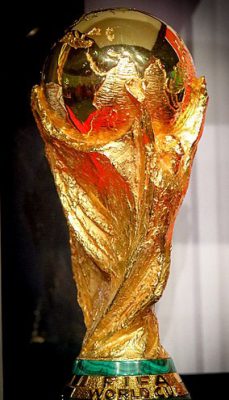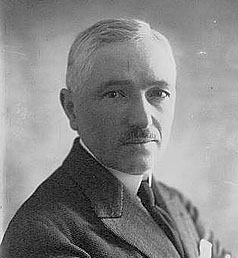By Ras Wadada
In the coming five weeks, the populace of the world will be riveted to television sets wherever they can be found so as not to miss the live unfolding of the biggest one-month party held every four years – World Cup football.
From its inauguration, in 1930, the quadrennial showpiece event continues to evolve while captivating the minds of the fanatics, fans and followers of the ‘Beautiful Game’ throughout the universe. Such is the magnetic powers of this unmatchable Global mono-mania that even politicians take leave of national duties and some countries are adopted by millions to give support during the 64-match schedule of the top 32 football nations in what is now referred to as the’ Greatest Show on Earth’.
Much credit must be given to Jules Rimet, the longest serving president of football’s world governing body FIFA, whose vision and insistence are chiefly responsible for the birth and early evolution of World Cup football. The Frenchman, who was the third elected head of FIFA, served at the helm between 1921 and 1954 and was also instrumental for creating the first French National League in 1910 and nine years later for the formation of the French Football Federation of which he was the first elected president.

It was at the 1920 FIFA Congress in Antwerp, Belgium, where Rimet first shared his dream to create an international football tournament that was to include professionals who were debarred from participating at the Olympics.
The thought of providing a platform to unify and reconcile nations through the sport also motivated Rimet, and, with loyal support from compatriot and secretary, Henri Delaunay, he persevered passionately, even in the wake of the British disapproval of the World Cup and their subsequent withdrawal from FIFA. However it was agreed in Amsterdam in 1928 that the first World Cup would be staged two years later. The following year, when Uruguay was awarded the rights to host the debut World Cup tournament, there were more withdrawals from European nations. Italy, Holland, Spain and Sweden, who lost the bid at the 1929 Congress held in Barcelona to decide the host nation, promptly pulled out.
Uruguay, who was celebrating 100 years of Independence in 1930, offered to pay travel and accommodation expenses for all the teams as well as build a brand new stadium. Added to that, they were the reigning ‘back-to-back’ Olympic champions. Hence, the 25 to 5 votes in favor of the South Americans.
The Godfather of the World Cup had to use all his diplomatic skills to persuade four European countries to make the two-week boat ride to Uruguay to be part of the historic opening. Rimet, with the trophy in a bag, joined the teams of Belgium, France, Yugoslavia and Romania on board the Italian steamboat, Conte Verde bound for Uruguay’s capital, Montevideo: On their way, they were joined by the Brazilians. The other nations to challenge for the inaugural Cup were USA, Argentina, Chile, Mexico, Paraguay, Bolivia, Peru and the host who triumphed over Argentina in the first Championship final
On July 13th 1930, France confronted Mexico while the USA matched skills with Belgium to simultaneously, kick start what has now become the biggest single sport spectacle that is passionately looked forward to and followed like no other.
This phenomenal experience gifted to the World over eight decades now, has surely evolved beyond the wildest dreams or expectations of the Godfather who handed over the winners’ trophy for the last time in 1954, the same year he resigned as the head of FIFA and also crowned the first honorary president of the body. Fittingly, the trophy was aptly named after him earlier in 1946, but, unfortunately, was stolen in 1983 from the Brazilian Football Museum. Brazil had won the trophy for keeps, in 1970, when they became the first country to win three championships (1958, 1962 and 1970). The Jules Rimet trophy also went missing in 1966 while on display in London, though it was found two weeks later by an Alsatian dog named ‘Pickles’.
The upcoming 21st edition set for Russia, will no doubt add more records to the already rich and unending history of the ‘Beautiful Game’.
There are some who will question why the world is so engrossed with what is happening during the World Cup and some who will also query what it is about the ‘People’s Game’ that continues to attract participation like no other sport.
Although there is no conclusive evidence as to the origin of football there have been many myths and claims as to its birthplace or where the first semblance of the sport was practiced. There is enough evidence, however, to show that organized football indeed originated in England where the first set of Laws of the Game were put together and written at a Freemason’s Tavern in London in 1863. Those Laws, with some modifications, are still used today.
The root-cause for the love of the ‘Beautiful Game’ must be in our genes and whether we wish to acknowledge that as fact or not we cannot deny that during creation we constantly kick in our mommy’s stomach, on arrival into the new world we continue to kick as one of our first action and in like manner when we attempt to make our first step in life it is led by a kicking action. As simplified as it is we can agree that we are all off-springs of the ‘Beautiful Game’ and being attracted to the sport is, perhaps, a natural human behavior since we are all born with the ability to kick.
Comments and views can be sent to: allanlarose53@gmail.com









